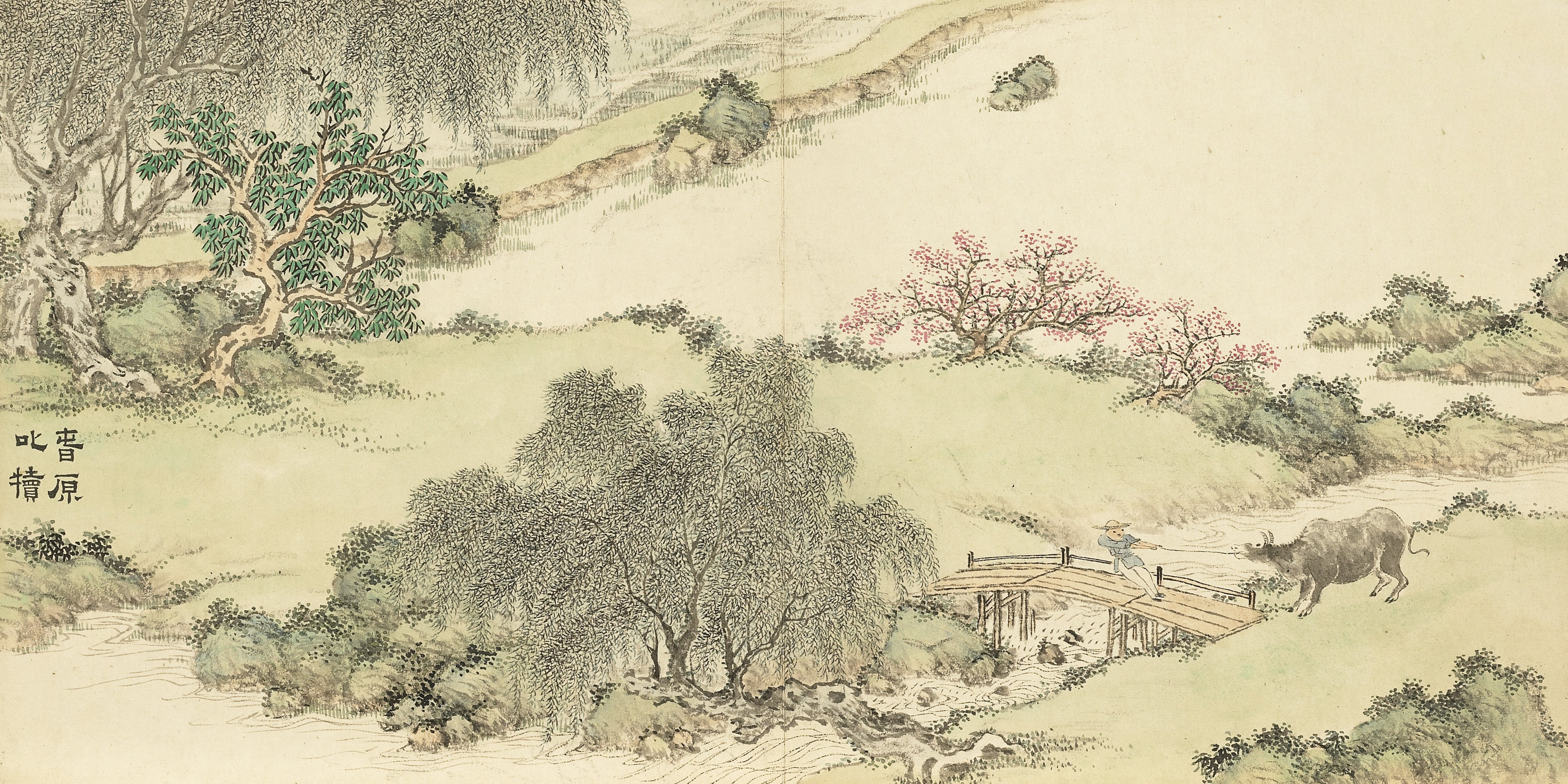
The Beauty of Spring in Tang Poetry
Evan Mantyk, Contributing Editor
Spring is a season full of hope and vitality. It’s a dramatically beautiful season that has inspired poets around the world for as long as there has been poetry. In the flourishing poetry culture of China’s Golden Age, the Tang Dynasty, there were countless verses about Spring, each imbued with the poet's lofty sentiments and elegance; each leaving a mark of timeless beauty on the pages of history.
Spring Dawn
Sleeping unaware through waking Spring,
Everywhere the bird beaks chirp and sing.
The wind and rain resounded through the night,
How many flowers did the downpour smite?
On a pleasant Spring day, the narrator is awakened by the chirping of birds, and quietly reflects on the cycle of blooming and falling flowers, like the ups and downs of life. This poem "Spring Dawn" was composed by Tang poet Meng Haoran during his seclusion in the Lu Mountains. The poet's tranquil and detached feelings are imbued with the charm of Spring scenery.
A Spring Night’s Delightful Rain
A good rain knows when it should come,
And that is in the Spring.
It sneaks in quiet on the wind,
Moistening each thing.
The wild paths are dark with clouds,
Only the riverboats shine.
At dawn, you’ll see the wet red spots
And know by that design
Soaked flowers in the imperial city
Hang their heads in decline.
The poem begins fresh, joyful, and romantic and still reveals the Tang poet Du Fu's concern for the people. In his poem the people, many of them farmers, are represented by the earth, which longs for rain to feed it while it grows anew in the Spring. He also alludes to corruption in the imperial capital city. Du Fu has imbued his compassion for all living beings in many vivid works, and is ranked among the greatest Tang poets.
Presented to Water Bureau Official Zhang Shiba in Early Spring
O heavenly street, moistened by rain’s cream—
No grasses there, but from afar they seem.
The Spring’s best time of year is here in full,
Surpassing the misty willowed capital.
This is a poem written by Tang poet Han Yu when he was almost sixty years old, after inviting his friend Zhang Ji to enjoy the Spring—an invitation that Zhang Ji declined. It is admirable how this elder, who has experienced the hardships of life, can still have such vibrant enthusiasm. He tells his friend: Spring has the most beautiful scenery of the year, and early spring is the most beautiful part; the early emerging grass, which is not quite grass yet at all, is some of the wonderful scenery of early Spring. Han Yu is writing while away from the imperial capital, so the second line’s point about the beauty of the grass existing more from afar and not up close suggests in lines three and four that, although they are far from the capital, it is also beautiful.
Dalin Temple’s Peach Blossoms
The human world’s perfume of April
Fades as it’s consumed;
While mountain temple blossoms
Begin their lives’ full bloom.
Long-lasting grudges have nowhere
To go back to this Spring,
Nor do I know what will come of me
Amidst what these changes bring.
This is a travel poem written by Tang poet Bai Juyi when he was serving as the governor in Jiangzhou. It can be considered a treasure among the quatrain (four-line) Chinese poems. The quickly warming world in April has lost the traces of all flowers, but luckily one can see the blooming peach blossoms at the remote mountain temple. The twists and turns of life, the unexpected opportunities, aren't they just like the miraculous encounter of peach blossoms at Dalin Temple?
We hope these verses about Spring will bring you inspiration and hope this season. Don't forget to visit our Blossoming into Spring page to enjoy the beauty of Spring shared by Shen Yun Collections.
You May Also Like
Lotus Fairies Earrings
1 comment
If everyone on the planet could see at least one performance of Shen Yun, imagine how much less strife there would be in this world. Personally I get very cynical and jaded when I hear about the horrible news flooding our airwaves. But when I go to church, for at least that one hour, the cynicism fades.























